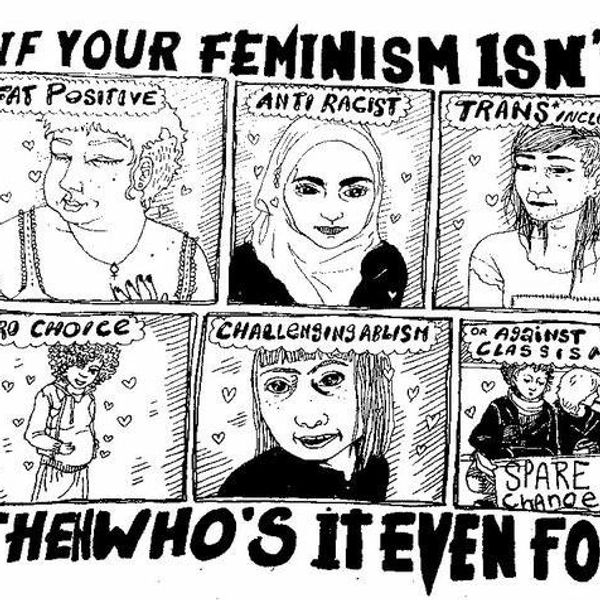With the recent rise of feminism in today’s culture comes a large set of debates—one of the more controversial ones being, “Should we call it feminism or equality?”
Honestly, there are points on both sides that are completely valid, however, it is important to keep in mind the history of the term. “Feminism” was coined in the 1890s, but the movement existed even earlier than that. Of course, it then makes sense that the main goals of the movement have changed over the decades. Roots for the word come from the French “feminisme” and were used in English to refer to equal rights for women. Goals for feminists up until the early 1900s mainly consisted of gaining political power—i.e., women’s suffrage. This first “wave”, of course, is often referred to as “first-wave feminism”.
“Second-wave feminism” was prevalent in the 1960s and 70s, and focused on cultural and law inequalities. Finally, we have “third-wave feminism”, which started in the 1990s and is ongoing, critiques the failures of past feminist movements and narrows in on the culturally-based inequality that women face (the patriarchy in the United States, for example).
Third-wave feminism is in a lot of ways much more inclusive than feminism in the past. Many supporters argue that up until recently, feminism focused on middle to upper class straight white women, and almost seemed to ignore the struggles of the lower class, minorities, and those on the LGBTQ spectrum.
A common argument for the elimination of the word “feminism” is from those who don’t completely understand what feminism is: an equal rights movement for women. Although the individual goals might differ over time, the overarching theme is the same: women deserve to be equals with men. This includes not only having the same rights, but for women to be seen as just as powerful and capable as men are in any given role in society. That is, they have a place outside the home; they can work, take charge, and do anything else that men can do. Of course, there are still differences between the sexes when it comes to physical capabilities, but that is a different argument that warrants its own article. Disregarding factors such as this, it is a fair assumption that women are capable of the same things as men, and therefore deserve to be placed on the same level of expectations as them.
It’s called “feminism” because it’s inherently about women. It always has, and it always will be. The moment it’s simply about equality and not about equality with women, it’s just that—equality, an entirely different movement.
It is easy to fall into the trap of believing that women no longer need a movement that is all about them. After all, women (for the most) part in western societies have voting rights, freedom to choose whatever life path they want, and are generally seen as equal to men. However, this isn’t necessarily true for women of color, lesbian, bisexual, and trans women, poor women, mentally ill women, disabled women, and so on. Rape culture still runs rampant—just take a look at the Brock Turner case, and you will know what I mean—and domestic abuse is also an issue. The problem today is that sexism is subtle—it is so deeply engrained in our culture that it is usually overlooked. Just because it’s not immediately recognizable does not mean that it is not a problem. For this reason, feminism is still needed today, and in fact it is more important than ever to recognize its vitality.
We need to work together to fight against the oppression that the patriarchy has caused, both directly and indirectly. Call it feminism, because that’s what it is—and that’s what it needs to be.




















